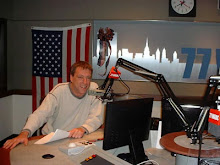
You still can't use a cell phone on board a plane, but why? There is not a shred of scientific evidence to suggest, as the F.C.C worries, that cell phones interfere with a plane's avionics. But, since 1991, the government has banned the use of cell phones in planes, because of fears, not evidence that the phones could knock an airplane out of the sky.
About four years ago, the industry asked passengers whether they'd like to see the ban lifted. An overwhelming number of fliers said, "no." But, the airlines don't like explaining why so many people balked at the privilege. It, in fact, had nothing to do with fears that the plane would crash, but because passengers simply wanted peace and quiet on board.

Most experts agree that the F.C.C ban stems more from "what could happen," verses what "would happen." Rick Seaney, CEO of FareCompare.com and ABCNews.com airline industry columnist, agreed that hard evidence backing up the ban is scarce.
"It's a myth," Seaney said. "It's a suggestion more than an edict. ... I think it's a fear of the unknown."
The airlines don't want to take any chances either. Why would they, in this litigious society. As soon as the ban is lifted and a plane crashes for no reason whatsoever, you can bet passengers will be lining up to sue not only the airlines, but the cell phone manufacturers.

Here's what the F.A.A, the F.C.C and the airline industry should do: Send up a pilotless 747 with 250 cell phones on board, activated from the ground by remote control and have them make and accept phone calls. Certainly, 250 cell phones going off all at once would be the ultimate test of whether on-board electronics are compromised or worst yet, whether any interruption would actually down a plane.
But, Alas, several European and Asian air carriers have contracted the services of OnAir, a company that outfits jetliners with its own mini-cell. The device essentially links the personal cell phones of passengers with an on board cell tower that diverts the signal directly to ground towers. This steers away the errant signal from crucial on board avionics. In April 2008, Air France became the first airline to use the technology. Several Middle Eastern and Asian airlines have followed suit. Knock on wood, not a single one of their planes has crashed.

Seems to me this would be the technology American airlines should deploy, if they want to be on the safe side, but guess what, it doesn't matter. Remember that survey the airlines did? Most passengers wanted no part of cell phones on board planes, not because they're scaredy cats, but because they don't want 250 Chatty Patty's on board disturbing the peace. Isn't it funny, though, when passengers learn that their plane might be about to crash, like the folks on board doomed Flight 93 or more recently on the U.S. Airways jet that belly-flopped in the Hudson River, that's the first thing passengers did. They made phone calls. So, even when many of the 155 people on board the U.S. Airways plane made calls, Capt. Chesley Sullenberger was able to land his plane with perfection. Can't blame the phones on that crash.







Frankly, I don't think anyone truly had time to power up their cell phones and make a call on the Hudson River crash. Flight 93, different story. Not that it would matter either way, but all the cell phone calls I heard from Sully's passengers came AFTER the plane was in the river.
ReplyDeleteWhile it is true that even 250 cell phones probably would have no bearing on navigation which is a much lower frequency, the fact that there could be (250 x 2watts) approx. 500 watts of power in close frequency proximity is a little scary. The reason is that the first RF stage of sensitive receivers can be "blocked" or "desensitized" from a strong RF field close by. Also if Broadband eventually becomes available onboard those frequencies are close to the cell frequencies and a lot of cells could knock you offline right when you're transfering money out of your bank account, or trying a last-second bid on eBay. Furthermore, people tend to talk louder on the cell than they need to and it's just weird when someone starts talking loudly at the grocery. I can imagine the chatter cachophony when 250 cells are active; especially 250 raised voices. I would like to see a transverter "station" where a passenger can stand in a mini booth with acoustical foam either side so there would be at max 2 or 3 on at one time. The "mini booth" would have an antenna to pick up the cell and direct the signal downward with a directional antennae built into the plane's belly. The acoustic foam would suppress the loud voice. This would limit both the RF field summation as well as the loud cachophony in the cabin. Time limits in the mini booth could be set to 10 minutes to thwart hours-long chit chat and allow access to all. Wireless internet also means the laptops transmit as well as receive but the power levels on those are but a fraction of cell power output. They could also allow cell use once on the ground to alert waiting transport etc. Everyone starts talking then anyway.
ReplyDelete